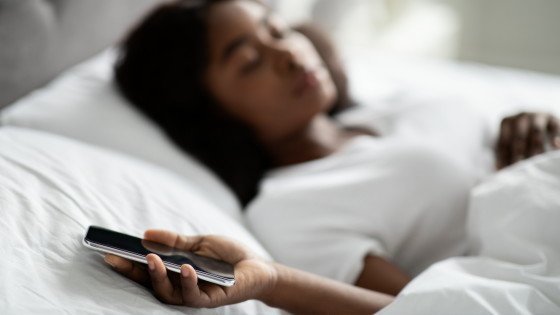“Lucid Experiment” is an app developed for experimental purposes by a lucid dreaming research team that can play sounds to guide users into lucid dreams. In experiments, subjects reported that they were able to have lucid dreams 2.11 times per week.
Lucid Experiment – Apps on Google Play
https://play.google.com/store/apps/details?id=com.neurelectrics.dive
Provoking lucid dreams at home with sensory cues paired with pre-sleep cognitive training – ScienceDirect
https://www.sciencedirect.com/science/article/abs/pii/S1053810024001260
Study shows pre-sleep training coupled with sensory cues can trigger lucid dreaming : For Journalists – Northwestern University
https://news.northwestern.edu/stories/2024/10/study-shows-pre-sleep-training-coupled-with-sensory-cues-can-trigger-lucid-dreaming-2
A lucid dream is a dream in which you are aware that you are in a dream, and lucid dreamers can freely control their dreams by moving to desired locations or making objects appear. The mechanism of lucid dreaming is gradually being elucidated, and a lucid dream induction technique called “targeted lucid dream reactivation method” (TLR method) has already been established. A research team at Northwestern University developed an experimental smartphone app “Lucid Experiment” that can easily perform the TLR method, and investigated whether the app could induce lucid dreams.
Lucid Experiment has a function that plays sound at a volume that does not wake the subject, and when the subject notices the sound made by Lucid Experiment while having a normal dream, he or she can take control of the dream. You can enter a lucid dream by holding it. The app looks like this: Please note that Lucid Experiment was developed for older versions of Android and cannot be installed on Android 15.
The experiment was conducted in two parts: “the first stage of training before going to bed” and the “second stage of actually playing the sound while sleeping”. As a result of conducting experiments with 19 subjects, the subjects were able to view the video an average of 2.11 times per week. One subject described the process of having a lucid dream: “I was in the locker room for my lifeguard job, and I kept hearing some noises.I was looking for the source of the sounds and was getting irritated, but suddenly I heard a sound. I realized that it was coming from the app.”
In addition, in order to confirm whether the app was effective, the research team gathered 120 subjects and divided them into “a group that played lucid dream-inducing sounds every day” and “a group that played lucid dream-inducing sounds every day.” carried out. As a result, the percentage of lucid dreams in the “group that played lucid dream-inducing sounds every day” was constant, whereas the rate of lucid dreams in the “group that played lucid dream-inducing sounds every day” was lucid dreaming on days when no sound was played. The percentage of people viewing this has decreased significantly. In other words, it was confirmed that the app has the effect of inducing lucid dreams.
In the future, the research team plans to improve the success rate of lucid dream induction by developing a “function that plays a guiding sound during REM sleep, where lucid dreams are most likely to occur.”
Copy the title and URL of this article
・Related articles
“Experiment to convey music from dreams to the real world” was successful, and there is a possibility that music played in dreams can be distributed in real time – GIGAZINE
A “language” has been developed to communicate with sleeping people – GIGAZINE
Research is underway to send Morse code from dreams to the real world using eye movements – GIGAZINE
Research results show that “alien abduction” may be due to lucid dreaming – GIGAZINE
How to avoid “nightmares”? -GIGAZINE
A drug that makes it easier to see “lucid dreams” is discovered – GIGAZINE
A scientific method has been discovered that allows you to see lucid dreams with the highest probability ever – GIGAZINE








